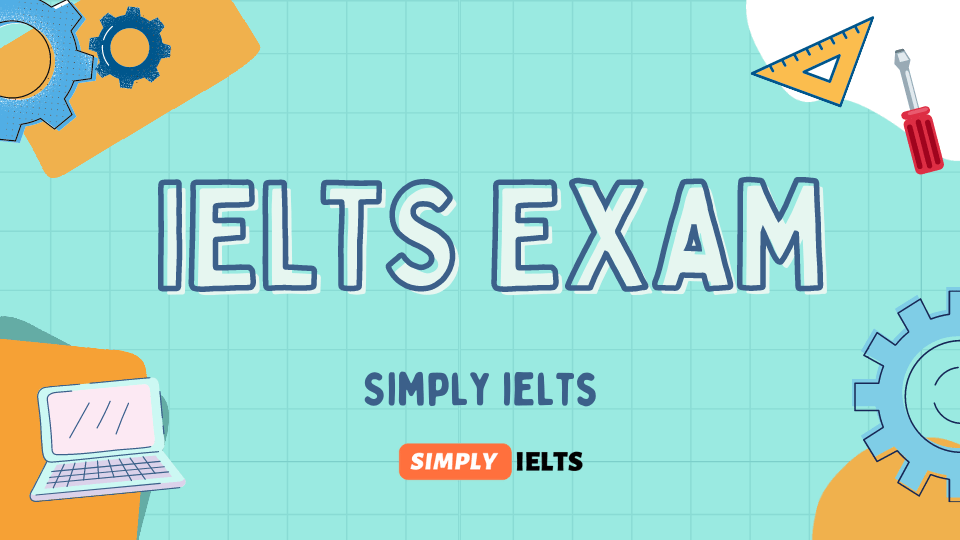
What is IELTS exam?
IELTS (International English Language Testing System) is the most popular international test for knowledge of English as a foreign language, included in the so-called “Cambridge” exams. This test is the property of three influential international organizations – the British Council, IDP IELTS Australia and Cambridge English Language Assessment, which certainly makes it one of the most well-designed and realistically assessing English language skills.
IELTS assignments are designed to reflect the context around us: texts in the reading section are taken from books, advertisements, scientific or business magazines and newspapers; audio recordings are real dialogues and monologues on general and special topics; writing tasks are typical essays or letters that we may encounter in real life; checking our oral speech takes place in a conversation with the inspector, during which we show how well we can maintain a conversation and express our own opinion.
What is IELTS exam – Modules of IELTS exam
IELTS is presented in two modules: Academic and General Training. The Academic module is usually taken by those who aspire to enter a university or continue their higher education in Britain, Canada, Australia and New Zealand. Passing this particular module is also required for researchers who wish to continue their career at a university in the above countries. General Training is sufficient for secondary education, employment and immigration to Britain, Canada, Australia or New Zealand. In the tasks of listening and speaking, Academic and General Training are the same, while in reading and writing, the Academic module is more difficult.
English skills tested in IELTS test
The second part to know what is IELTS exam is English skills will be tested during the test.
IELTS assesses your level of English by testing four basic skills:
- Listening
- Reading
- Writing (Letter)
- Speaking
Each skill is tested separately, for which there is a section of the same name. All skills are tested on one day, the immediate duration of the test is 2 hours 45 minutes.
Listening
Listening is tested first. The time allowed for this part is 30 minutes and it is the same for both the General Training module and the Academic module. It includes four sections:
- Part 1 – a conversation between two people on everyday topics (for example, asking for information about prices, services, and so on).
- Part 2 is a monologue on everyday topics at a slightly higher level than in Section 1 (for example, a simple presentation or speech).
- Part 3 – a conversation between several people on an academic or general education topic (for example, students discussing an upcoming project).
- Part 4 – a monologue on an academic topic (for example, an excerpt from a lecture or program on a scientific topic).
This part of the exam tests how well candidates understand general ideas and specific facts, and how they can draw correct conclusions about the meaning of what is said. The tracks for the test are recorded with speakers of different accents (British, American, Canadian and others).
Reading
Next comes Reading. The time allotted for reading testing is 60 minutes. By taking this part, candidates must demonstrate their ability to understand specific facts, determine the author’s opinion and attitude to the issue, recognize key ideas, counter arguments, and so on. The texts for the Academic and General Training modules are different. In both versions, 40 tasks are given in 3 texts.
The reading tasks for the General Training module are based on excerpts from magazines, newspapers, books, instructions, letters, and so on, containing information that we often encounter in everyday life.
Reading tasks for the Academic module are based on three texts of complex structure and subject matter, which are usually taken from popular science publications, lectures or scientific journals, but can be understood by the audience,
All texts and passages used in this part are completely authentic, that is, they are not adapted for any level of English proficiency.
Writing
The third part of the test is Writing. The time dedicated to this part is 60 minutes, during which candidates must complete two written assignments. The tasks for the Academic and General Training modules are different. The Writing section of the Academic Module consists of the following tasks:
- Academic Writing Task 1 – a task where you need to describe in your own words the graph or diagram shown in the figure. The amount of written text should be 150 or a little more words, and it should take about 20 minutes.
- Academic Writing Task 2 – also write an essay in English , expressing your own opinion on the topic provided. At the same time, the volume of the written essay should be 250 or a little more words, and the time spent should be about 40 minutes. Both the first and second tasks should include special expressions at the Upper-Intermediate level, which are used when expressing thoughts in writing.
The written assignments in the General Training module are, of course, easier than in the Academic module, but there are also 2 of them, and they also take 60 minutes:
- General Writing Task 1 – write a letter. In this letter, you need to request information regarding, for example, courses, services, goods, and so on, or explain the situation to an imaginary landlord, for example. There can be many tasks or situations. The letter should be 150 words or more, and of course it is written with specific words and expressions in mind that are used to write letters.
- General Writing Task 2 – an essay in which the candidate must express his own opinion on the problem or point of view given in the assignment. The essay should include about 250 or a little more words, and to get a good result when writing it, it is recommended to use special expressions at the Intermediate level, which help express your thoughts when writing essays.
Speaking
The last part of the IELTS test is testing oral speech skills – Speaking. Speaking is tested after a short break given after the previous three parts, and is the same for both the Academic module and the General Training module.
The speaking test takes place with a certified examiner and includes communication on a variety of topics. This part of the test, like the previous ones, consists of several parts, in particular, in this case there are three of them:
- IELTS Speaking Part 1 – interview – the candidate is invited to answer simple questions about his personality, family, hobbies, preferences, and so on. This part takes 4-5 minutes.
- IELTS Speaking Part 2 (IELTS cue card) – in the second part, the candidate expresses his opinion on a certain topic, and the examiner asks 1-2 questions at the end of the candidate’s monologue. In this part, the candidate is given 1 minute to prepare, after which he must speak for 2 minutes.
- IELTS Speaking Part 3 – The third part is a discussion with the examiner on the topic covered in the second part. The discussion lasts approximately 4-5 minutes. In all three parts, the candidate must demonstrate the ability to respond to the situation and questions of the examiner, as well as to express his opinion on a wide variety of topics, from personal preferences to the current political situation in his country.
In the following table, we briefly summarize the data on the structure of both modules:
| Skill/Module | General Training | Academic Training |
|---|---|---|
| Listening _ | 4 sections, tasks are the same for both modules – 30 minutes | |
| Reading _ | 3 texts using general vocabulary related to everyday life in an English-speaking environment – 60 minutes (about 2000-2500 words in total) | 3 texts, each text of 650-1000 words, taken from specialized newspapers, magazines, lectures, but understandable without special training – 60 minutes |
| Writing (Letter) | Task 1 – write a letter (~ 150 words); Task 2 – write a short essay on a given topic (~ 250 words) – 60 minutes in total | Task 1 – describe a diagram, a table, the operation of some mechanism (~ 150 words); Task 2 – write an essay on a given topic – only 60 minutes |
| Speaking _ | tasks are the same for both modules – 11-14 minutes | |
After taking the test, reviewers take 13 days to review the test and send candidates their results. The results are sent in the form of a special certificate called the Test Report Form, while copies of this certificate can be sent free of charge at the request of the candidate to five more organizations (universities, corporations, and so on).
The certificate is given a score from 1 to 9, which is the average score for all 4 aspects (Listening, Reading, Writing, Speaking) of the exam, as well as individual results for each of the parts passed.
What is the IELTS exam validity?
The results are valid for two years after the test date.
To pass IELTS successfully, you first need to know what is IELTS exam, that is, the types of tasks that can be found in it, and the strategies and order of their implementation.
In addition, it is necessary to have knowledge of certain words, phrases and expressions that are indispensable when performing the written tasks described, and the general level of vocabulary and knowledge of grammatical structures must be sufficient so that the candidate can understand the presented texts, as well as competently express his thoughts in conversation with examiner.





Responses